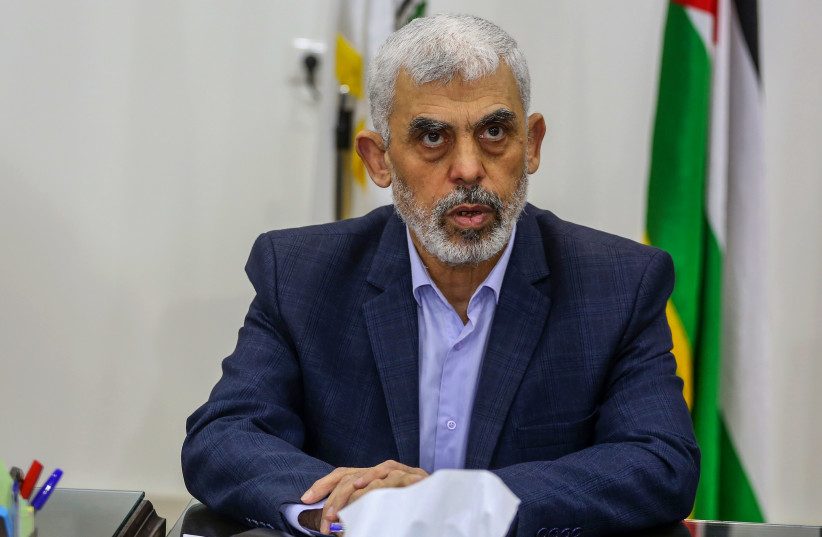On January 25, 2006, elections were held in the Palestinian territories for the Legislative Council. Surprisingly, the Hamas organization, running as Change and Reform List, won 74 of the 132 seats, while its Fatah rival won only 48 seats. As a result, Palestinian Authority (PA) President Mahmoud Abbas asked Hamas leader Ismail Haniyeh to form a government.
On that same day, a Democratic senator named Joseph R. Biden, along with Senate Foreign Relations Committee staff director Antony Blinken, staff member Puneet Talwar, and US ambassador to Israel Richard Jones met with veteran Israeli politician Shimon Peres. The ensuing discussion, buried in piles of Wikileaks documents, testifies to the misconceptions and mistaken assessments of the time.
When Biden asked about the role Hamas might assume in the post-election period, Peres was dismissive.
“What does Hamas have to do with victory?” he asked rhetorically and answered, “If they win, they face a dilemma. If they enter the government, they must change or (risk) endangering other Palestinians. They won’t get the financial support they need to deliver results if they don’t stop terror. That will put pressure on them to moderate.” Peres pointed to a possible paradox, whereby “the more Hamas wins, the stronger the position of Fatah [will be] in Palestinian politics.”
Witnessing the rise of Hamas in Gaza
Peres was not concerned about the rise of Hamas. He thought Israeli policymakers would refuse to work with the group if it remained a terrorist organization. On the other hand, he suggested that Israeli pundits should criticize Israeli politicians rather than the absence of strong Palestinian leadership. “They don’t have a Ben-Gurion or a Lincoln, but the Palestinians are still a people,” he said.

Biden also asked about the prospects of Gaza’s economy following Israel’s pullout in September 2005. Peres emphasized that Gaza needed regional cooperation between Israel, Jordan, and the Palestinians in order to survive. Yet, he lamented the fact that Israel took it upon itself to export Gazan produce, referring to the undertaking as “a blessing that has become a curse: We must x-ray every tomato. Why should we torture them?”
Peres expressed his preference for Gaza to export its produce through Egypt.
Biden then asked whether the Gazan economy was large enough to attract foreign investment, to which Peres responded that Saudi and Palestinian billionaires were interested in joint ventures. In a prophetic judgment, Peres added, “The Saudis are becoming more pragmatic as they realize how important Jordan is as a buffer state with an Iraq dominated by the Shi’a.”
ASKED WHY Israel had not done more after the disengagement to unfetter the Gazan economy, Peres cited Palestinian rocket fire but did not offer any suggestions on how to deal with this problem. Pressing on the economic issue, Biden asked what could be done to prevent the disintegration of the Gazan economy. Peres lauded the possible nomination of former Palestinian finance minister Salam as prime minister (which indeed occurred in June 2007), but then offered another solution: Jordan would administer the West Bank economy, while Egypt administered the Gaza economy. He ended on an arrogant note, telling Biden that the Palestinians should understand that they could make money from business, not only from corruption.
The Peres-Biden conversation is illuminating. First, it demonstrates the absence of Israeli strategy for “the day after” its disengagement from Gaza.
The ideas put forth for an airport, seaport, and safe passage between Gaza and the West Bank were not implemented for security reasons, leaving the Gaza economy isolated, even before Hamas seized power in June 2007, and bearing out the PA’s concern that the enclave would become a de facto prison.
Second, the talk reveals flawed judgment regarding the meaning of the elections, which reflected structural, ideological, and political changes in Palestinian society. Hamas won not only because of PA corruption but also because the unilateral disengagement was perceived as a victory of its armed struggle – much like Hezbollah’s victory resulted in Israel’s unilateral withdrawal from Lebanon in May 2000.
Third, Peres clearly reflected an optimistic Israeli school of thought that Hamas could change its stripes and become more moderate as a result of outside pressure. What is more, some in Israel believed that certain Arab states would seriously consider administrating Gaza or the entire Palestinian territories.
Some of these flawed judgments are still prevalent in the conduct of the 2023 Gaza war.
During his recent visit to Israel at the start of the war, Biden reminisced about his meeting with prime minister Golda Meir when he was a young freshman senator in 1973. Biden did not mention his conversation with Peres that took place more than three decades later, and it is doubtful he has any clear memories of it. Yet the protocol exposes the problem of Israel’s decades-long Gaza conception, which has come back to bite it and has now been dumped at Biden’s door as president.
The writer teaches at the Department of Islamic and Middle East Studies and the Hebrew University of Jerusalem and is a board member at the Mitvim Institute for Regional Foreign Policies.
